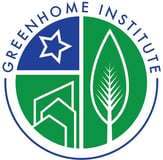Can we use an Energy Attribute Certificates (EACs) Tracking System to Get Buildings to Zero Carbon?
GreenHome Institute Weekly Free CE Webinar Presents:
Can we use an Energy Attribute Certificates (EACs) Tracking System to Get Buildings to Zero Carbon? - Free CE Webinar
Wednesday, May 15 @ 12 PM EDT
Details to view the event are private and will be sent along with your ticket purchase.

